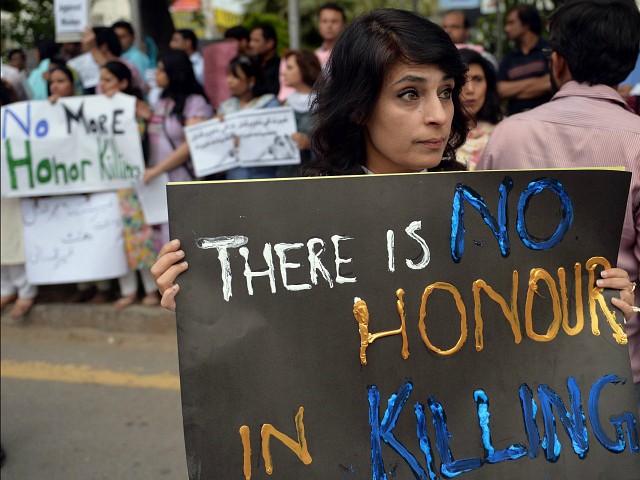Allah Ditta, 24, was stabbed repeatedly before five men cut off his arms, lips, and nose, leaving him to bleed to death in Dera Ghazi Khan district, Pakistan. Ditta had allegedly had “an affair” with a woman who wished to elope with him but was forced by family to remain with her husband.
This is the latest incident in a pattern of “honor killing” throughout the southeast Asian nation, in which family members kill relatives, or those of their spouses, as a response to alleged moral transgressions.
Ditta was believed to have been conducting an affair with a married woman, CNN reports. He was allegedly en route to meet her, though the local Pakistan Observer claims Ditta was going to meet relatives with his brother and father. On his way to his destination, five men stopped Ditta, stabbed him repeatedly until he was unable to stand up, and began taking chunks of his body away. He arrived at the hospital missing his arms, lips, and nose.
The woman was allegedly the sister-in-law of his employer, Australia’s News.com.au reports, and they had attempted to begin a life together openly, but the local village council forbade their love match.
Daily Pakistan quotes a police official as stating that two relatives of the woman in question have been identified as the organizers of the attack.
The outlet also notes the pervasive nature of honor killings in Pakistan. Citing the Human Rights Commission of Pakistan, the newspaper notes that 1,100 people have been honor-killed in 2016 so far; in 2011, that number was 720. While only 88 of those have been men, it is not unheard of for families to kill men they believe are acting in violation of their moral code. The men killed are often victims along with their wives by family members who disapprove of the relationship.
Ditta’s murder has occurred in the hometown of one of the most high-profile victims of honor killings in history: Qandeel Baloch, a 25-year-old social media star whose brother drugged and suffocated her to death last week. Baloch had made a name for herself posing in risqué photographs for Facebook and Instagram and had recently starred in her first music video. Her brother, Waseem Azeem, asserted he was “proud” of the murder and that Baloch had always been a problem because “girls are born to stay home.” Baloch was a vocal feminist who condemned Pakistan as a toxic patriarchal society in interviews.
Baloch’s crime has increasingly begun to look less like an honor killing — a murder to avenge immoral activity — than a revenge killing for Baloch’s political activity against a prominent Islamic figure. A month before her murder, Baloch had met and taken selfies with an influential Islamic cleric, Mufti Abdul Qavi. Qavi was suspended from his positions of authority for appearing in the selfies, but the controversy continued: Baloch said Qavi consumed soda in front of her before sunset during Ramadan, a violation of Sharia law, and had made inappropriate sexual advances towards her. She received death threats following the declaration and issued a demand for security from Pakistani law enforcement, which was ignored.
Baloch’s mother told police that Qavi had personally inspired her son to kill her daughter, which Waseem Azeem himself told police that the mufti scandal was “the end of it” and that he had immediately begun plotting the murder following his demotion for acting inappropriately with Baloch.
